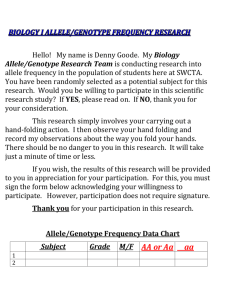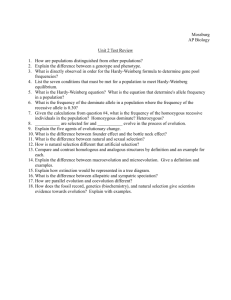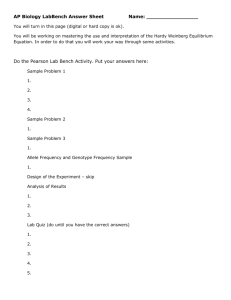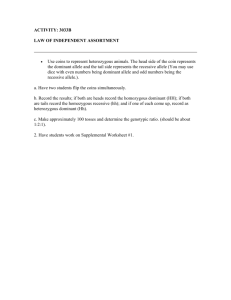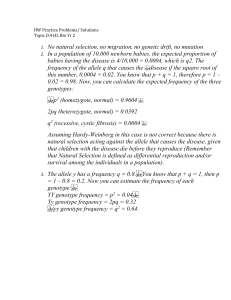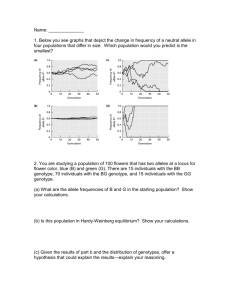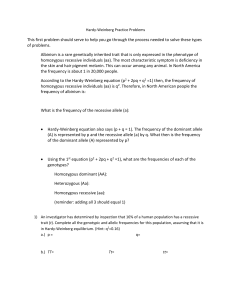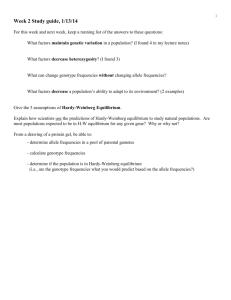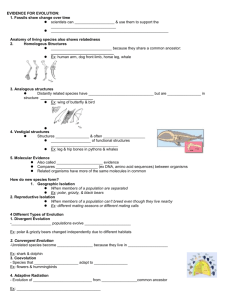Hardy-Weinburg
advertisement
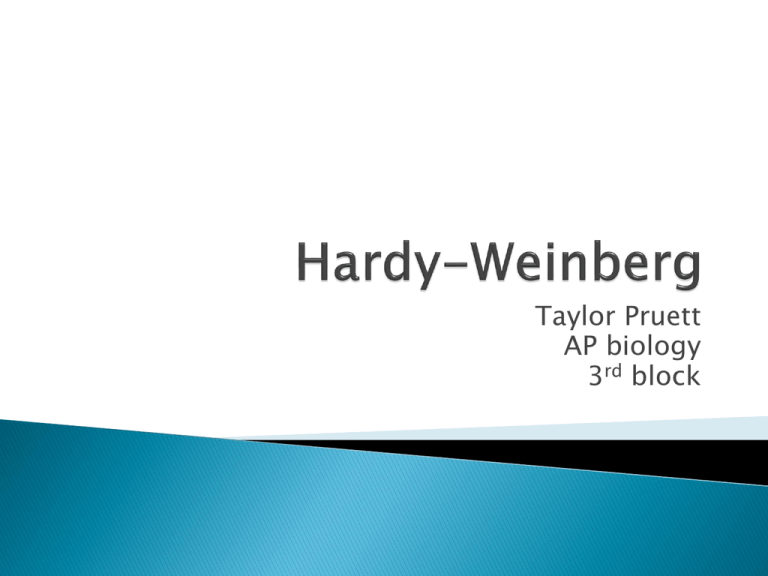
Taylor Pruett AP biology 3rd block British mathematician Godfery H. Hardy and German physician Wilhelm Weinberg. In 1908, Hardy and Weinberg came up with a mathematical model to estimate the genotypic frequencies of a population that is in genetic equilibrium. Genetic Equilibrium: where allele frequencies do not change. The Hardy-Weinberg principle states that in a large randomly breeding population, allelic frequencies will remain the same from generation to generation assuming that there is no mutation, gene migration, selection or genetic drift. Genetic equilibrium is referred to as HardyWeinberg equilibrium. This describes a stable, nonevolving population; allelic frequencies do not change. Requirements: ◦ ◦ ◦ ◦ ◦ Population must be large Population must be isolated No mutations Mating must be random No natural selection The Hardy-Weinberg principle is illustrated in a mathmatical equation: p²+2pq+q²=1 p+q=1 p = frequency of the dominant allele in the population q = frequency of the recessive allele in the population p2 = percentage of homozygous dominant individuals q2 = percentage of homozygous recessive individuals 2pq = percentage of heterozygous individuals Example: ◦ D= p ◦ d= q So, set up your equation like: ◦D²+2Dd+d²=1 ◦ ◦ ◦ ◦ ◦ D²= frequency of DD 2Dd= frequency of Dd d²= frequency of dd D= frequency of the D allele d= frequency of the d allele ◦ You have sampled a population in which you know that the percentage of the homozygous recessive genotype (aa) is 36%. Using that 36%, calculate the following: ◦ The frequency of the "aa" genotype. ◦ The frequency of the "a" allele. ◦ The frequency of the "A" allele. ◦ The frequency for the “AA” allele. 36%, as given in the problem itself If q² = 0.36, then q = 0.6, again by definition. Since q equals the frequency of the “a” allele, then the frequency is 60%. Since q = 0.6, and p + q = 1, then p = 0.4; the frequency of A is by definition equal to p, so the answer is 40%. Since p=0.4, to find p², (0.4)²=0.16. So the frequency of the “AA” genotype is 16%. A census of albatrosses nesting on a Galapagos Island revealed that 24 of them showed a rare recessive condition that affected beak formation. The other 63 show no beak defect. What is the frequency of the dominant allele? Give your answer to the nearest hundreth. 24+63= 87 total birds. 24/87=0.28 Take the square root You get 0.53 1-0.53= 0.47 P= 0.47
